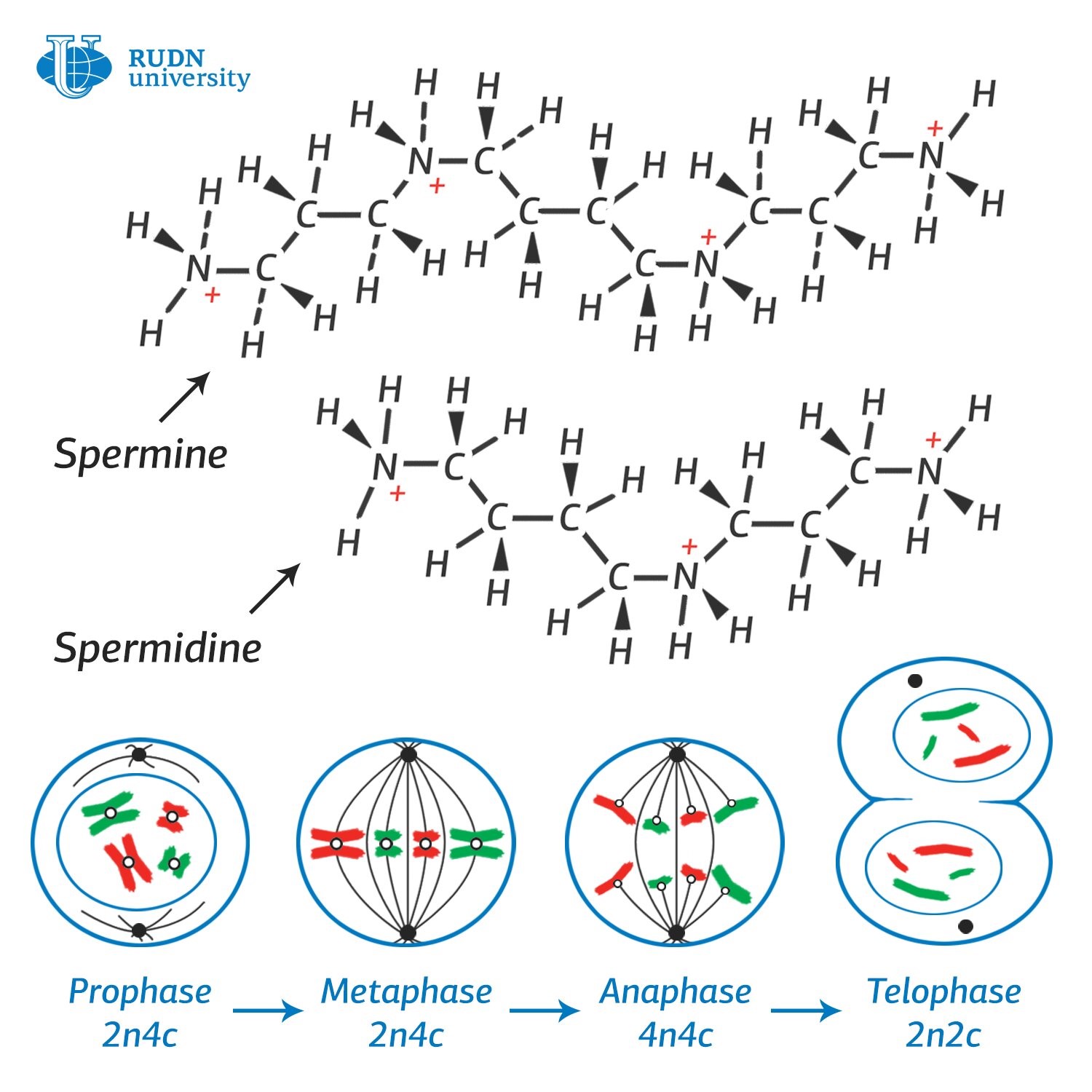Biochemist discovers a promising enzyme to fight cancer cells

Polyamines (PA)—spermidine (Spd) and spermine (Spm)—play an important role in the body’s protective reactions. Polyamines are regulators of growth, differentiation and the process of cell death. The dynamics of the metabolism of polyamines is used in the diagnosis of pathologies of systems and organs. Disorders in the metabolism of polyamines lead to an increase in their concentration in the body. This is accompanied by accelerated tissue proliferation due to cell division. This mechanism is typical of various forms of cancer. On the other hand, some decay products by oxidation of polyamines show antitumor and antimicrobial activity and slow the growth of certain types of cancer cells, bacteria and viruses. A RUDN University biochemist proposed to use these properties for the treatment of cancer.
Professor of the Department of Biochemistry of RUDN University Sergey Syatkin designed the structure of the molecule (ligand) with predetermined properties. To do this, he used bioinformatics and computer modeling technologies, primarily molecular docking. This method allowed him to predict how the drug molecules will behave in relation to the target protein. Based on molecular docking data, biochemists synthesized 36 nitrogen-containing substances with different chemical structures. They made a classification of the stimulating effects of these substances on the cells of the body. It turned out that the effects of a potential drug depended on the way in which the special molecules—ligands—included in their composition, accelerated the decay of polyamines by their oxidation.
Using computer simulations, biochemists visually detected how the molecules of inorganic substances that make up the potential drug will dock with one of the mouse proteins. Their classification made it possible to correctly predict the nature of the effects that the substance of the drug will have on the body of an experimental animal. After that, a series of experiments on rats was carried out.
Experiments have shown that substances that can enhance the oxidation of PA can become potential anti-cancer agents. This opens up the prospect of developing antitumor drugs based on the use of substances that activate the rate of decay of PA by enzymatic oxidation.
Matilda Pavlovna Mityaeva was born in 1925. In November 1942, she volunteered for frontline duty. She participated in the Great Patriotic War from November 1942 to June 1945 as part of the 53rd Infantry Division of the 475th Infantry Regiment. She was wounded twice.
The team led by Sergey Zyryanov, Head of the Department of General and Clinical Pharmacology, became the winner of the All-Russian competition of scientific projects "Technologies for Human Health".
RUDN University constantly adapts to the changes of the modern world and responds to challenges flexibly. This allows us to keep the standard of a world-class research university. The sphere of science is no exception. Peter Dokukin, Head of the Research Division, presented the updated R&D Programme at the meeting of the RUDN University Academic Council.
Matilda Pavlovna Mityaeva was born in 1925. In November 1942, she volunteered for frontline duty. She participated in the Great Patriotic War from November 1942 to June 1945 as part of the 53rd Infantry Division of the 475th Infantry Regiment. She was wounded twice.
The team led by Sergey Zyryanov, Head of the Department of General and Clinical Pharmacology, became the winner of the All-Russian competition of scientific projects "Technologies for Human Health".
RUDN University constantly adapts to the changes of the modern world and responds to challenges flexibly. This allows us to keep the standard of a world-class research university. The sphere of science is no exception. Peter Dokukin, Head of the Research Division, presented the updated R&D Programme at the meeting of the RUDN University Academic Council.